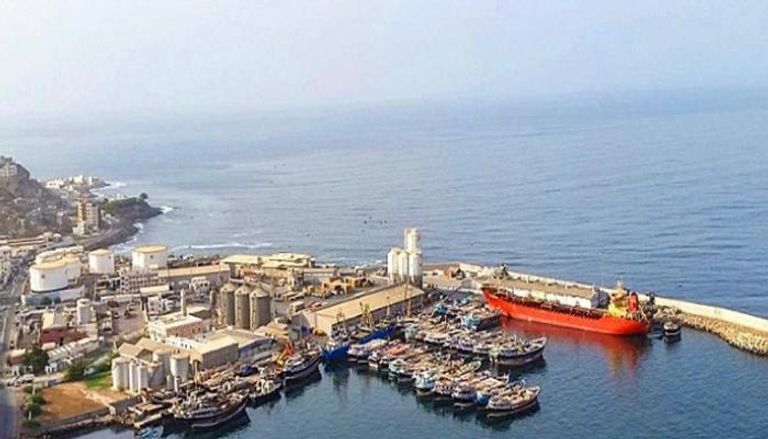The Houthi Militia usually adopts escalation as a tactic to achieve whatever it could not obtain through negotiations. After placing obstacles in the path of renewing the ceasefire, in relation to issues of sharing oil revenues, the militia on the 18th and 19th of October attacked the ports used for exporting oil in Shabwa and Hadramout, with drones. While these attacks did not result in major damages, they represent a warning of further escalation if the militia’s demands are not met. While it is unlikely that the various parties involved in Yemen are willing to accede to these demands, they will have to assess the future risks to the oil sector in Yemen, and either provide the means to secure it, or negotiate a different political agreement.
The Houthi attacks come in the context of their wish to preserve the gains achieved through the truce, such as the continued flow of oil shipments and commercial shipping, and the operation of Sanaa Airport. However, they also wish to consolidate these gains through sharing in oil revenues, that is reaching a wealth-sharing agreement although a power-sharing agreement has not been reached, nor progress made in negotiating a political resolution to the conflict. At the same time, the Houthis could target the oil shipments destined for various countries in the midst of a global energy crisis, thereby threatening these countries interests. The Houthis could also imitate Russian tactics in Ukraine, using Iranian drones to attack infrastructure targets in Yemen.
The Houthis realizes that the current balance of power will not allow them to gain further control over the country’s energy sources, as they have failed in more than two years of confrontation with the Army to penetrate the Ma’rib front. The Houthis also failed to penetrate the Shabwa front, where they were defeated by the Amaleka Brigade. Hence, they have turned to the use of drones to increase pressure on their opponents.
A similarity can be noted here between Houthi and Iranian tactics, as Iran usually tries to ramp up pressure on its negotiation partners to coerce them into accepting its terms, turning every step of negotiations into a transaction through which it must make gains. Iran in fact encouraged Houthis leaders to continue to engage in negotiations over the cease fire, and to maximize their gains from these negotiations, during a visit by the head of the Houthi negotiating team, Muhammad Abd al-Salam, to Iran last September, in which he met with many Iranian officials, including Ali Akbar Velayati, the foreign affairs advisor to the Iranian Supreme Leader.
It is also noteworthy that Iran had tried to escalate its own pressure off the coast of Yemen, by targeting cargo ships. It was forced to stop these operations as US Central Command employed stronger means of deterrence, including the establishment of the Joint Force (153) to enhance security in the Red Sea and Bab al-Mandab.
Government options
In response to Houthi attacks, the Yemeni government began by refuting Houthi arguments, with the Yemeni Minister of Information, Muammar Al-Eryani, revealing that the militia turned down the government’s offer to transfer salaries according to the 2014 payroll. The militia actually fired thousands of government employees, and put its own members on the government payroll, and these are the ones it is seeking to fund with oil revenues. The government also moved to increase pressure on the Houthis by designating the militia as a terrorist group and threatened to withdraw from the Stockholm Agreement.
In practical terms, it can be argued that both the cease fire and the Stockholm Agreement only served as restrictions on the government. Houthi violations did not stop during the cease fire, and even before that, the Houthis did not adhere to the minimum requirements of the Stockholm agreement. The Houthis militarily attacked the International Monitoring Forces in Hodeidah, and the Joint Forces on many fronts. In sum, the government’s current stance indicates it has lost hope of reaching a peaceful resolution with the Houthis, which posits the option of a return to military confrontation.
However, the military option poses various challenges to the government, in terms of achieving the requirements of defense and deterrence, especially if the Houthis increase their targeting of civilian infra structure, which is completely exposed. Providing defensive capabilities for these sites would be difficult, especially as demand for this type of equipment has risen as a result of the widescale use of drones by Russia in Ukraine. This equipment is also extremely expensive. But the prospect of damage and casualties resulting from Houthis attacks on ships could encourage international intervention.
While there is international political solidarity with the government in condemning Houthis attacks, there is far less support for a return to military confrontation. On the contrary, international attention is still focused on an extended cease fire and de-escalation, as indicated by the statements of the UN Mission in Yemen.
Decreased Houthi capabilities
Although the Houthis are capable of military escalation, it must be noted that its strength is somewhat diminished. Although the militia tries to claim otherwise, it is facing difficulties in mobilization. Moreover, in order to escalate military pressure, it would need to exert control over oil and gas resources, which would be very difficult in view of the army’s improved capabilities. Such an escalation would also weaken the Houthis, as they would lose the economic benefits they are receiving as a result of the cease fire.
The Iran factor and its potential impact on possible military escalation in Yemen must also be taken into account. Iran may turn to its regional proxies to play a role in view of its own current domestic challenges. Iran could ,on the other hand, be forced to decrease its support to the Houthis, which would significantly weaken them. In the short run, however, it is likely that all sides will employ whatever capabilities they can muster to pressure and coerce their opponents.


